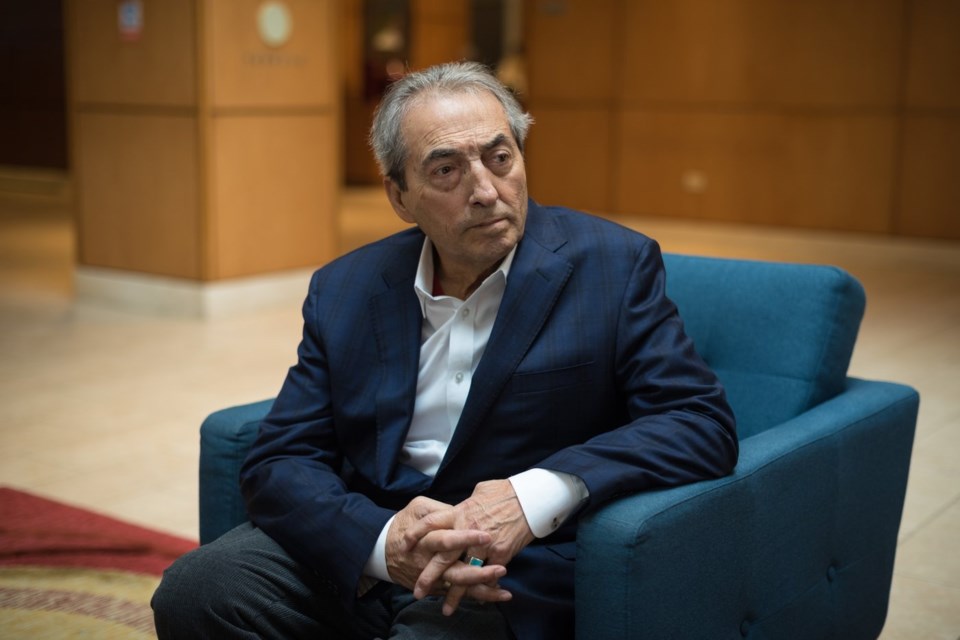OTTAWA — The former national chief of the Assembly of First Nations is calling for an emergency meeting of chiefs to come up with demands for Canada's governments as they look to fast-track projects they see as in the "national interest."
Phil Fontaine said the federal, provincial and territorial governments are trying to demolish First Nations rights and interests as they move to accelerate project approvals in a way that does not "honour the First Peoples."
"It's been a long time since I've been to a gathering such as this one — a rally — to demonstrate our undying commitment to the protection of the land and our resources and our water," Fontaine said in front of hundreds of protesters outside Queen's Park on Monday.
First Nations leaders gathered at Ontario's legislature to oppose a bill that would give Premier Doug Ford's government the power to suspend provincial and municipal laws for chosen projects in areas deemed to have economic importance.
Similar measures are being pursued in Alberta, British Columbia and Quebec and the federal government is expected to table fast-track legislation of its own in the coming days.
First Nations leaders have warned they're not afraid to revive the Indigenous rights movement Idle No More if governments move forward without their input.
Fontaine said he wants current National Chief Cindy Woodhouse Nepinak to convene an emergency meeting of chiefs from across the country to bring forward a list of demands for the governments.
"It's absolutely important. It's urgent that the national chief convene this gathering," he said, adding First Nations are being excluded from "all the very important discussions taking place right now."
"We have to take matters into our own hands. And we will do it in the most kindest way possible, but in a very determined way to express, once again, who we are — the First Peoples, treaty people."
Fontaine's call came as Prime Minister Mark Carney met with premiers in Saskatoon Monday to discuss a draft list of "national interest" projects and planned federal legislation to fast-track development.
That legislation is intended to speed up work on certain projects with a streamlined regulatory approval process as a substitute for reviews under the Impact Assessment Act.
After his meeting with premiers on Monday, Carney pledged that the legislation on nation-building projects will include meaningful consultation.
"All first ministers agree that Indigenous partnerships and equity will be central to success," he told reporters at a news conference.
"Upcoming federal legislation will mandate both meaningful consultation with Indigenous Peoples both during the process of determining which projects are in the national interest, and developing the conditions for each project."
First Nations leaders have warned that introducing the legislation without proper consultation would violate their rights and undermine treaties they signed with the Crown.
In a letter sent to Carney on Friday, Woodhouse Nepinak said that while the Assembly of First Nations supports efforts to protect Canada from geopolitical and economic uncertainty, First Nations rights under international law and the Constitution are "at stake in this legislation."
The federal government gave First Nations leaders a short briefing document on the legislation last Monday and asked them to report any concerns they had about the plan by the end of that week — even as chiefs in the Prairies were dealing with emergency wildfire evacuations and as leaders were busy mounting opposition to provincial legislation.
"First Nations’ free, prior and informed consent must first be obtained," Woodhouse Nepinak wrote in her letter to Carney.
"Otherwise, this legislation, like so many before it, will become marred in conflict and protracted litigation because First Nations rights have once again been ignored."
This report by The Canadian Press was first published June 2, 2025.
Alessia Passafiume, The Canadian Press



